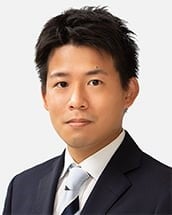In brief
A law amending the Act Against Unjustifiable Premiums and Misleading Representations (“Act“) came into effect on 1 October 2024.1 The Consumer Affairs Agency has broadly divided the amendments into three categories: “promotion of voluntary efforts by entrepreneurs,” “strengthening violation deterrence” and “developing regulations to ensure smooth enforcement, etc.” In this alert, we briefly introduce and outline the amendments.
1. Promotion of voluntary efforts by entrepreneurs
(1) Introduction of commitment procedure
The most notable aspect of these amendments is the introduction of a commitment procedure.2 Prior to the amendments, there was no system for evaluating entrepreneurs that voluntarily and proactively took steps to correct and prevent the recurrence of violations, etc. The commitment procedure enables an entrepreneur suspected of having made a misleading representation, etc. to avoid an administrative disposition (e.g., an order for action3 or an administrative fine (“Surcharge“) payment order) by preparing and submitting a corrective action plan and receiving the approval of the Prime Minister.
(2) Making the Surcharge refund system more flexible
Article 10 of the Act enables a specific consumer who has engaged in transactions involving goods or services subject to a Surcharge payment order to receive refunds, and the amount of the Surcharge is reduced by the amount of money refunded to the consumer. Prior to the amendments, refunds could only be provided in the form of cash and the system was rarely used. In order to promote use of the system and make it easier for ordinary consumers to recover damages caused by misleading representations, the amendment allows refunds to be made in cash, by electronic transfer and other methods.
2. Strengthening violation deterrence
(1) Review of the Surcharge system
Before the amendments, the amount of a Surcharge was calculated on the basis of the sales amounts of goods and services subject to the Surcharge. However, entrepreneurs that made misleading representations in some cases failed to properly manage their sales data, making calculation of the Surcharge amount difficult. In order to address this issue, the amendments allow the sales amount to be estimated where an entrepreneur fails to report it.4
In addition, it has been considered problematic that some entrepreneurs repeatedly commit violations despite having previously received orders for action or Surcharge payment orders. To deter repeat offenders, a new provision has been added increasing the Surcharge amount by 150% where an entrepreneur has received another Surcharge payment order within the previous 10 years.5
(2) Expansion of penalty provisions
A new penal provision has been established under the amendments6 imposing a maximum fine of JPY 1 million on individuals or entities that have engaged in one the specified types of misleading representations. The new provision imposes immediate penalties rather than encouraging voluntary improvements through the issuance of administrative guidance or administrative orders.
3. Legislation to ensure smooth enforcement
(1) Response to globalization
Prior to the amendment, no provision clearly related to services. The amendments add new service-related provisions.7
In addition, cases in which a foreign entrepreneur makes misleading representations in Japan require cooperation with foreign authorities (e.g., provision of information to the authorities in the foreign entrepreneur’s home country). The Prime Minister has been empowered under the amendments to provide information to foreign authorities.8
(2) Introduction of rules related to requests for disclosure by qualified consumer organizations
Provisions have been added allowing qualified consumer organizations to request disclosure of certain information. Even before the amendments, a qualified consumer organization could seek an injunction where an entrepreneur was making or was deemed likely to make misleading representations. After the amendments, a qualified consumer organization may, in certain cases, request that an entrepreneur disclose data showing that its representations are reasonably supported by the facts. The entrepreneur is obligated to make its best efforts to comply with such a request.9
1 Please refer to the following link for the revised text (Japanese only).
2 Articles 26 to 33 of the Act.
3 Article 7 of the Act.
4 Article 8, Paragraphs 4 of the Act.
5 Article 8, Paragraphs 5 and 6 of the Act.
6 Article 48 of the Act.
7 Article 42 to 45 of the Act.
8 Article 41 of the Act.
9 Article 35 of the Act.






